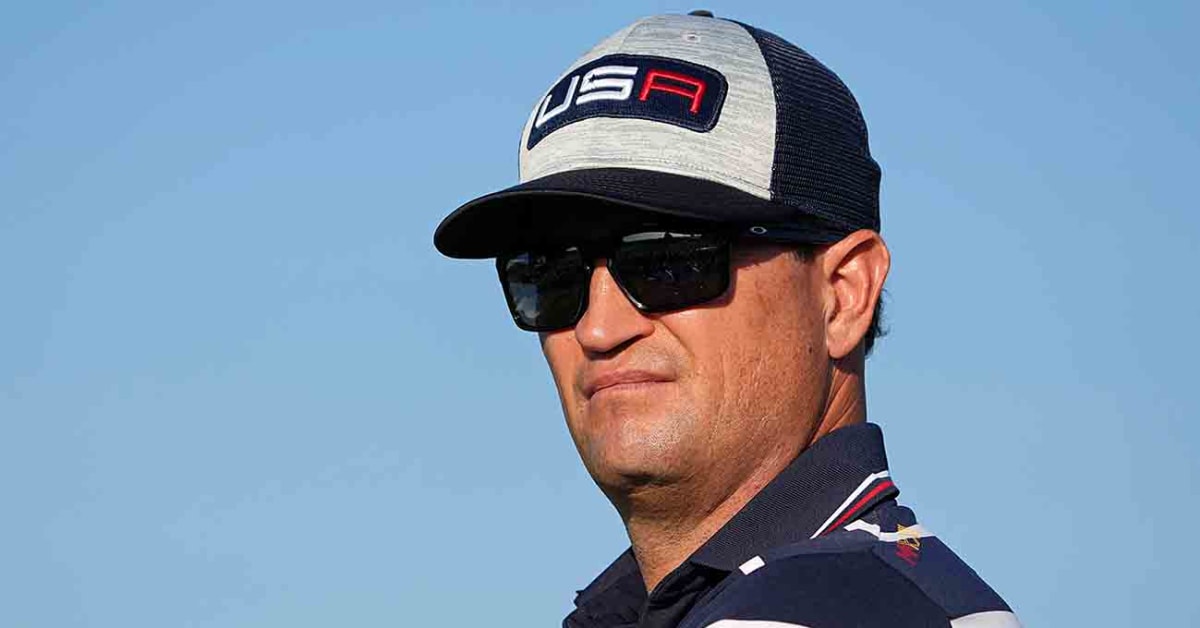
A Full-Time Coach, Not a Captain, Is the Solution for U.S. Ryder Cup Road Woes
Captains vs. coaches.
What is the difference? And if it matters, should the U.S. Ryder Cup team consider making a switch?
Well, this fall’s debacle at Marco Simone makes it 30 years since a U.S. team won a road Ryder Cup. In 1993, Tiger Woods was in high school, the Titleist Pro V1 hadn’t been invented and the NFL had 28 teams.
It’s time for a complete change in approach.
The captains’ names have been familiar: Tom Kite, Curtis Strange, Tom Lehman, Corey Pavin, Tom Watson, Jim Furyk, Zach Johnson. All lost road Ryder Cups.

Zach Johnson was another familiar golf name to lead a U.S. Ryder Cup team this year. And like others over the last three decades, he and his team lost on the road.
Kyle Terada/USA TODAY Sports
But if you go back to the 1991 and ’93 Cups, when the Americans won two in a row, the record is 4–10 despite home losses in ’95, 2004 and ’12—proving that winning away games is not impossible.
So, what to do?
It’s time to look in a different direction with a focus to build a strong U.S. Ryder Cup program: by hiring a full-time coach.
An actual coach, likely a successful college coach, would make the most sense, and there is significant precedent for this.
Start with USA Basketball’s Mike Krzyzewski, who began as head coach of USA Basketball in 2005. After a bronze at the world championships in ’06, the Duke coaching legend won gold at the ’10 and ’14 worlds and in the ’08, ’12 and ’16 Olympics—and all while still coaching the Blue Devils.
The selection process for those teams is a lengthy one that has full buy-in from the managing director of USA Basketball, the head coach and his assistants.
In 2021, the roster for the U.S. team started with 57 players and was whittled down to 12 players. If not for the pandemic, the process would have included an offseason training camp where players compete for a chance to play for Team USA.
It is a process that any professional golfer is familiar with if they played in college, as each week you had to earn your way onto the playing roster by playing against the rest of the squad.
The model of a head coach and clear selection process requiring a training camp is used in hockey, soccer and other sports so that the best team can be constructed.
Take the 1980 U.S. Olympic hockey team coached by Herb Brooks, the University of Minnesota head coach. He put together a team of 20 players that weren’t the best in the land but the 20 he believed would make the best team.
Of those 20, 12 were Minnesota natives, and nine of those players played for Brooks at Minnesota.
You know how that ended, with a gold medal in Lake Placid that was one of the greatest feats of any American team in any sport and likely one that never would have happened if not for Brooks’s unpopular decisions about the makeup and selection of his team.
Now this is the point when you might ask where is the culpability of the U.S. Ryder Cup players who don’t perform overseas. Fair question, but that’s my point—a coach should pick the best team, not one via points lists and friendships.
You could also make the point that multimillionaire golfers won’t participate in training camps, yet Michael Jordan, Larry Bird, Kobe Bryant and Lebron James all have done so for USA Basketball.
So who would you select as head coach of the Ryder Cup team? It’s an easy call for me: University of Illinois men’s head golf coach Mike Small.
Small is an accomplished head coach with 24 years at Illinois, with 16 NCAA championship appearances.
He played five years professionally before taking the head job in Champaign, Ill., and has since played in numerous professional senior events, including the 2023 U.S. Senior Open while coaching 33 All-Americans.
John Fields at Texas and Conrad Ray at Stanford would also be coaches worth looking at, as well, but Small’s ability to play golf at the highest level is a huge benefit.
The Ryder Cup used to be an exhibition, but those days are long in the rearview mirror. The PGA of America needs to get serious about building a winning culture on the U.S. team, and the route to that is with a full-time coach, not biennial captains.